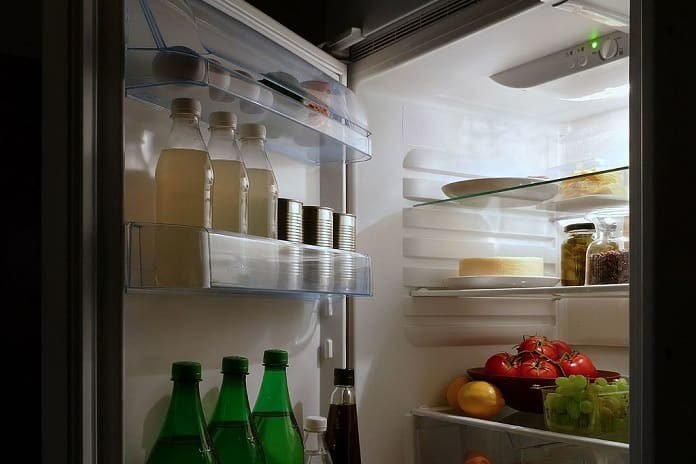In a recent study published in the British Journal of Nutrition, researchers determined how bedtime snacks impact our metabolism.
A glass of milk before bed resonates with many as a tool for comfort. This typical bedtime snack may have been introduced to us through tradition by our fathers, mothers, or grandparents as a healthy pre-bedtime ritual.
Several studies have dabbled with the question if bedtime snacks pose a negative or positive effect on our resting metabolic rate (RMR), insulin levels, weight management, and overall cardiovascular disease (CVD) risk.
Resting Metabolic Rate or RMR is a baseline measure of the rate at which our body metabolizes energy when at rest; this measure determines how many of the calories we consume are necessary to perform basic bodily functions including our ability to stand upright and breathe.
Insulin levels fluctuate based on our macronutrient intakes
Researchers are also questioning the effects of bedtime snacking on insulin levels as insulin is arguably one of the most important hormones produced by the human body. Generated by beta cells in the pancreas, insulin is our body’s guide that determines if we store energy as fat, or if we will burn our fat reserves for an emergent energy surge. Without it, we would not survive. Insulin fluctuates based on macronutrient intake, including the consumption of fat, protein and simple sugar or glucose. Therefore, we must ensure that our snacking habits do not tarnish the function of this hormone.
In England, researchers from three universities in the United Kingdom, University of Stirling, University of Highlands and Islands, and Edinburgh Napier University, joined together to get to the bottom of how bedtime snacks impact our metabolic pathway; their findings were published in the British Journal of Nutrition. Before this study, two papers on the metabolic effects of bedtime snacking were published.
Studies in the past have found conflicting results
In one study, eating before bedtime showed a positive correlation with weight gain, increased CVD risk and an overall decrease in the feeling of satiety or fullness in the preceding day. Conversely, another study produced results favouring the habit of bedtime snacking. Researchers found that by consuming protein dense snacks derived from milk including whey protein and creatine products 30 minutes before going to sleep, active males were able to increase their resting metabolic rate, thus increasing the overall number of calories burned throughout the day.
With one study on this subject supporting the consumption of bedtime snacks that are protein dense, and one study on this subject rejecting the idea of bedtime snacking as a healthy activity, researchers from England’s universities were questioning the validity of both studies. It was time to determine what advice patients should take seriously.
Researchers decided to conduct a randomized cross-over design, in which a group of 12 mildly overweight, yet healthy males would be monitored and randomly assigned to consume either a placebo with no nutritional value (water) or a protein dense milk beverage with either 10 or 30 g of protein as a bedtime snack. Participants consuming either the 10 or 30 g protein beverage made up the research group, while those consuming water as their bedtime snack comprised the control group.
Researchers predicted that the ingestion of the milk beverage would result in an increased RMR for research group compared to the control group; they also hypothesized that those consuming the beverage would 30 g of protein would have a higher RMR compared to those who were randomly assigned to consume the beverage with 10 g of protein.
Finally, after two days of a set sleep, rise, and eating schedule, participants would end their contributions to the study and return to their normal routines. During the span of these two days, researchers would gather their anthropometric measurements including height and weight, and they would access the sleeping schedule, hunger levels, serum or blood profiles and resting metabolic rates; these measures would allow the group to dub bedtime snacking as either a beneficial or harmful activity.
Bedtime snacks may not impact metabolic rates
After carefully assessing the impacts of consuming protein dense bedtime snacks, what researchers found was quite the surprise. Contrary to their initial hypothesis, blood samples, survey answers accessing sleep quality and satiety indicated that the consumption of bedtime snacks did not impact the metabolic rates of the research group—in fact, there was no significant difference in such measurements when comparing the control group, those who consumed water, and the research group, those who consumed the protein-rich snack.
While there are studies to support both sides of the argument for and against the consumption of bedtime snacks, definitive results dubbing the activity as healthy or unhealthy are yet to be gathered by researchers. What the researchers in these universities in the United Kingdom have done is nothing short of significant—they have taught us, the consumers, to further question what information about nutrition we apply to our lives.
With no clear metabolic impact, our ritual of bedtime snacking may no longer carry a feeling of guilt, or perhaps, the promises of a better metabolism that we once held sacred have been destroyed. Regardless of our feelings towards having a bite to eat before bed, it is our responsibility to question: “what impact does my bedtime snack have on my health?”
Written by Nikki Khoshnood, BHSc Candidate
Reference: Lay.H.H.A, Crabtree.R.D, Campbell. G.T, M.Gillian, Galloway.D.R.S, Tipton.D.K, Witard.C.O.(March 24, 2018). A bedtime snack does not impact RMR, substrate utilization and appetite the following morning in mildly overweight males. Published by British Journal of Nutrition.



